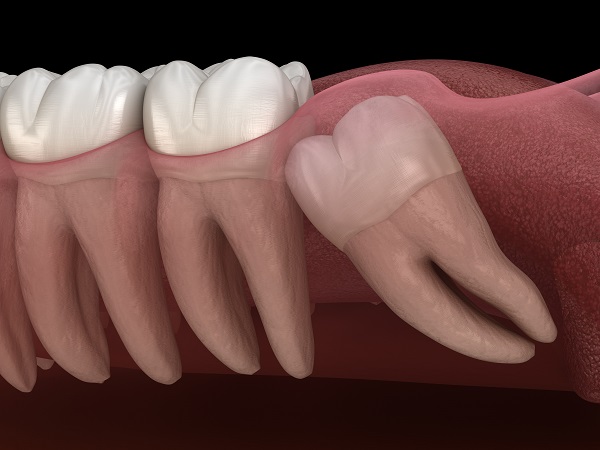Signs to Consider Wisdom Tooth Extractions

A wisdom tooth extraction is often necessary in order to eliminate accompanying symptoms. Many individuals experience the eruption of their wisdom teeth and never notice the signs. However, there are also a lot of cases in which the wisdom teeth present noticeable symptoms that can be used to identify eruption. Teenagers and young adults should be aware of these signs as they may help indicate a need for a wisdom tooth extraction.
Wisdom tooth extraction signs
Outlined below are a few signs that indicate a need to consider wisdom tooth extraction. Keep reading to learn what to keep an eye out for!
Pain or discomfort
The number one sign that indicates a consideration for wisdom tooth extraction is pain or discomfort. When the wisdom teeth erupt, they often cause irritation because they are pushing the already-rooted teeth in different directions. This push can result in pain or discomfort. Pain may be felt in the upper or lower jaw, depending on the location of the eruption. Additionally, the back molars and gums may feel sore.
Swelling or inflammation
Wisdom teeth that erupt can cause swelling and inflammation in the gums, typically in the back of the mouth. It can be difficult to see that far back; however, most individuals can feel around with their finger or tongue to determine if the gums seem puffy or swollen. These symptoms can also lead to an infection in the gums, which makes it necessary to be evaluated for wisdom tooth extraction right away.
Crowding
Another sign that a wisdom tooth extraction is worth considering is if the teeth start crowding. When the wisdom teeth erupt, they can push the other adult teeth into a crowded position. Crowding may not seem detrimental, but it actually is. When the teeth start to crowd, it can result in increased chances of tooth decay and gum disease. Teeth that are not evenly aligned are more difficult to clean as there are harder-to-access areas, thus resulting in a lack of oral hygiene, which can lead to infection development.
Pressure
Oftentimes when the wisdom teeth begin to erupt, they can cause pressure in the oral cavity, typically in the back of the mouth. The upper and lower jaw, as well as back molars, usually experience the most amount of pressure. Pressure can be irritating and may lead to other symptoms, such as discomfort in the jaw. Any feelings of pressure should be taken to a general dentist who may recommend a wisdom tooth extraction.
Find out more about wisdom tooth extraction
There are a lot of signs that indicate a need to consider wisdom tooth extraction, going far and beyond the ones listed above. However, knowing what all of these signs are can be difficult, which is where a general dentist may be needed. A general dentist can perform an evaluation to help individuals determine whether or not wisdom tooth extraction is necessary. Reach out today to learn more or to get started with a consultation.
Request an appointment here: https://www.drkhorsand.com or call Khorsand Dental Group at (760) 394-3082 for an appointment in our El Centro office.
Check out what others are saying about our services on Yelp: Read our Yelp reviews.
Related Posts
Clear braces are becoming more common among patients of all ages. In past years, orthodontists chose traditional metal braces to straighten crooked teeth. However, there are advantages to using clear options instead. If you do not want your orthodontic treatment to hinder your smile, you should not have to worry. Repair your teeth without anyone…
If you have ever had a dental crown placed, you know that the process often involves multiple visits and temporary crowns. A CEREC dentist offers a faster solution to the typical dental crown process. Using advanced technology, these dentists create durable, high-quality crowns in just one appointment.A CEREC dentist uses Computer-Aided Design and Manufacturing (CAD/CAM)…
There are many options that you can consider when looking at partial dentures. They can come in several different materials and varieties. Let us take a look at each one, taking both the pros and the cons into account.Acrylic dentures are probably the most commonly used variety. There are several benefits to them. First, they…
Oral surgery is a broad term that covers a wide variety of procedures related to teeth and gums. There are a number of reasons dentists may recommend dental surgery for a patient. Most often, they do so if the pain or discomfort a patient is feeling or an injury or infection goes deep enough into…
